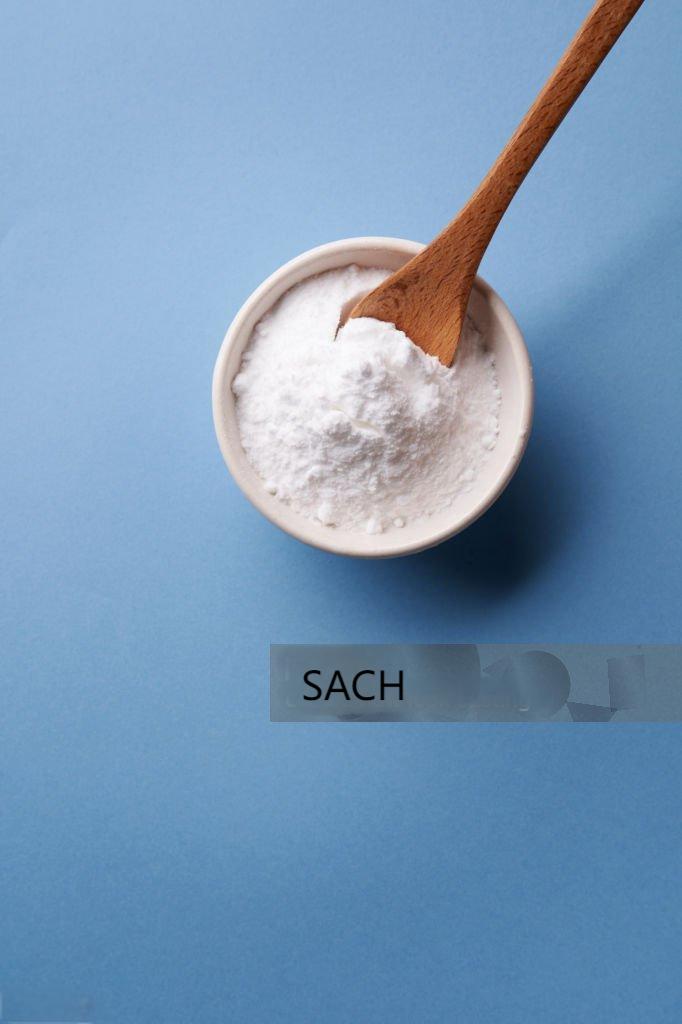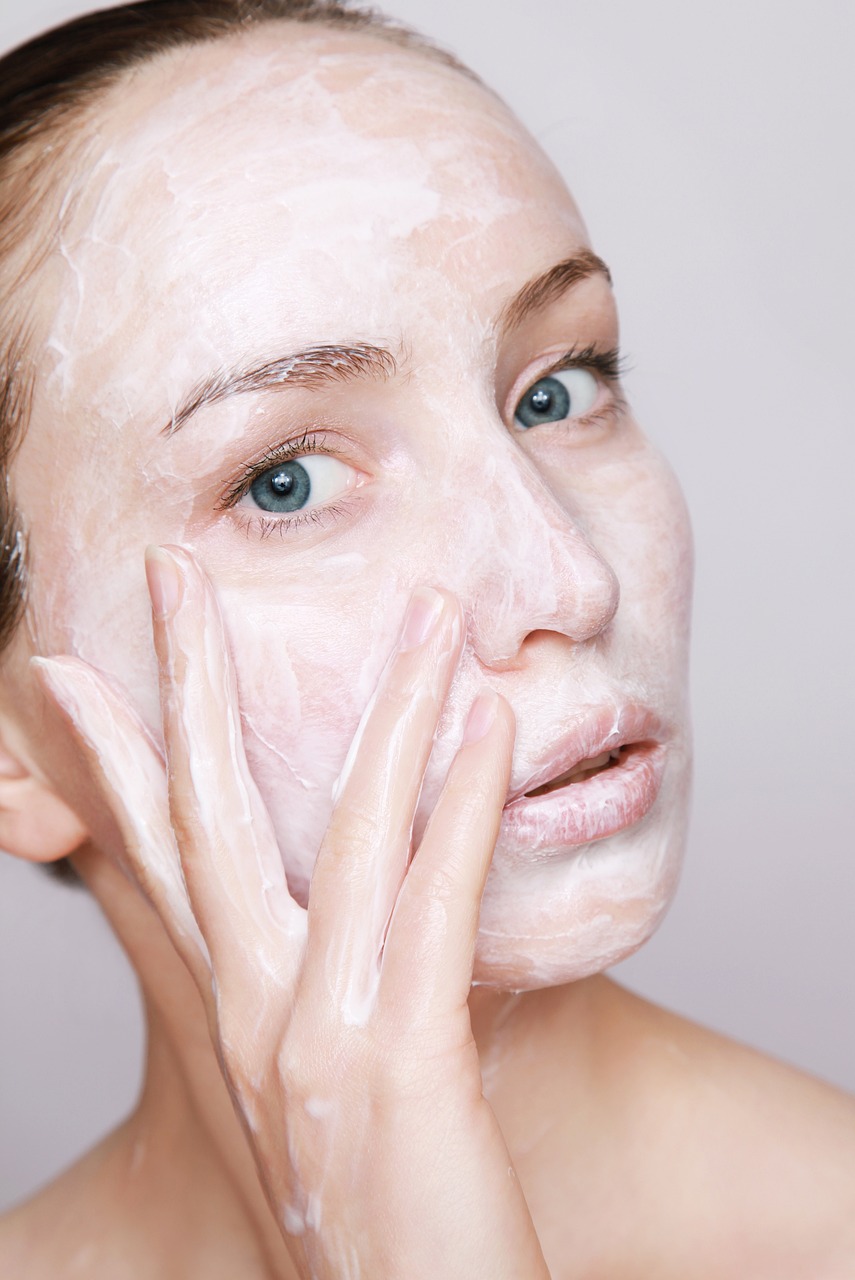- This topic is empty.
-
AuthorPosts
-
29/04/2025 at 15:49 #95077
Inflammatory skin conditions such as atopic dermatitis, psoriasis, and contact dermatitis are characterized by an overactive immune response, leading to redness, swelling, itching, and discomfort. These conditions often result from complex interactions between environmental stressors, immune dysregulation, and impaired skin barrier function. In recent years, ectoin – a naturally occurring extremolyte synthesized by halophilic (salt-loving) microorganisms – has emerged as a potent compound for skin protection and inflammation mitigation. In this blog post, SACH, a high purity cosmetic raw materials exporter, will share the soothing effect of antioxidant ectoin powder on skin inflammation, which is of great significance in the field of dermatology and cosmetics due to its strong antioxidant properties and ability to stabilize cell membranes.
What is Ectoin (CAS No.: 96702-03-3)?
Ectoin (1,4,5,6-tetrahydro-2-methyl-4-pyrimidinecarboxylic acid) is a low molecular weight cyclic amino acid derivative. It functions primarily as a compatible solute, helping microorganisms survive in high-stress environments such as saline lakes, deserts, or high-temperature conditions. The compound was first isolated from Ectothiorhodospira halochloris, a bacterium known for thriving in hypersaline habitats.
In skincare science, ectoin is valued for its osmoprotective, antioxidant, and anti-inflammatory properties. It does not interfere with normal cellular function but protects cells and biomolecules against environmental damage. Its powdered form, typically obtained through controlled fermentation and downstream purification processes, ensures stability and compatibility with a wide range of topical formulations.

How Ectoin Powder Alleviates Skin Inflammation?
1. Membrane and Protein Stabilization
Ectoin interacts with water molecules via a process known as preferential hydration. In this mechanism, ectoin forms a highly structured hydration shell around proteins, enzymes, and lipid bilayers, which stabilizes their conformation and protects them from denaturation. This is particularly important under oxidative stress conditions where cellular components are vulnerable to ROS-induced damage.
By preserving the integrity of keratinocytes (the predominant cell type in the epidermis), ectoin helps maintain skin barrier function – a critical aspect in preventing the penetration of irritants and allergens that can trigger or exacerbate inflammation.
2. Reduction of Oxidative Stress
Oxidative stress is a key contributor to skin inflammation. Reactive oxygen species (ROS) such as superoxide anions, hydroxyl radicals, and hydrogen peroxide are overproduced in inflamed skin and lead to damage of lipids, proteins, and DNA. Ectoin exhibits significant ROS-scavenging activity, mitigating oxidative damage at the cellular level.
Moreover, studies have demonstrated that ectoin indirectly enhances the activity of endogenous antioxidant enzymes, such as superoxide dismutase (SOD) and glutathione peroxidase, thereby reinforcing the skin' s natural defense systems.
3. Modulation of Inflammatory Cytokines
In inflammatory skin disorders, pro-inflammatory cytokines such as IL-1β, IL-6, TNF-α, and IL-8 are elevated, leading to immune cell infiltration and tissue damage. Ectoin has been shown to downregulate the expression of these cytokines in vitro and in vivo.
In particular, ectoin inhibits the activation of nuclear factor kappa-light-chain-enhancer of activated B cells (NF-κB) – a transcription factor that regulates the expression of many inflammatory genes. This downregulation results in a measurable decrease in inflammation markers, contributing to symptom relief in clinical conditions like atopic dermatitis and eczema.
4. Barrier Repair and Hydration
A disrupted epidermal barrier not only contributes to trans-epidermal water loss (TEWL) but also permits the ingress of pathogens and irritants. Ectoin supports skin barrier homeostasis by enhancing lipid synthesis and promoting the expression of structural proteins like filaggrin and involucrin.
Additionally, ectoin's ability to retain water molecules contributes to long-lasting hydration and improved skin elasticity. Well-hydrated skin is less prone to inflammatory flare-ups, further supporting its therapeutic effect.

Clinical Evidence and Dermatological Applications
A number of clinical studies have assessed the efficacy of ectoin-containing formulations in reducing symptoms associated with inflammatory skin diseases.
– Atopic Dermatitis: In a double-blind, placebo-controlled trial, a 7% ectoin cream significantly reduced erythema, pruritus, and TEWL in patients with moderate atopic dermatitis over a 4-week period. The treatment was well-tolerated, with no significant adverse effects.
– UV-Induced Inflammation: Ectoin has been tested in sunscreens and after-sun lotions due to its photoprotective capabilities. In human studies, ectoin-containing emulsions reduced UVB-induced erythema more effectively than conventional products without ectoin.
– Irritant Contact Dermatitis: Subjects treated with ectoin-enriched barrier creams experienced faster recovery and decreased cytokine levels after exposure to sodium lauryl sulfate (SLS), a common irritant in industrial and cosmetic settings.
These findings highlight ectoin's multifaceted role in controlling inflammation, enhancing skin resilience, and improving clinical outcomes across a spectrum of skin conditions.
Conclusion
Ectoin powder represents a powerful natural ingredient with clinically relevant antioxidant and anti-inflammatory properties. Its multifaceted mechanism of action – ranging from membrane stabilization and ROS neutralization to cytokine modulation – makes it an ideal candidate for the treatment and prevention of various inflammatory skin conditions. As demand grows for gentle, effective, and scientifically validated skincare solutions, ectoin is poised to become a cornerstone ingredient in dermatology and cosmetic science.
-
AuthorPosts
- You must be logged in to reply to this topic.
